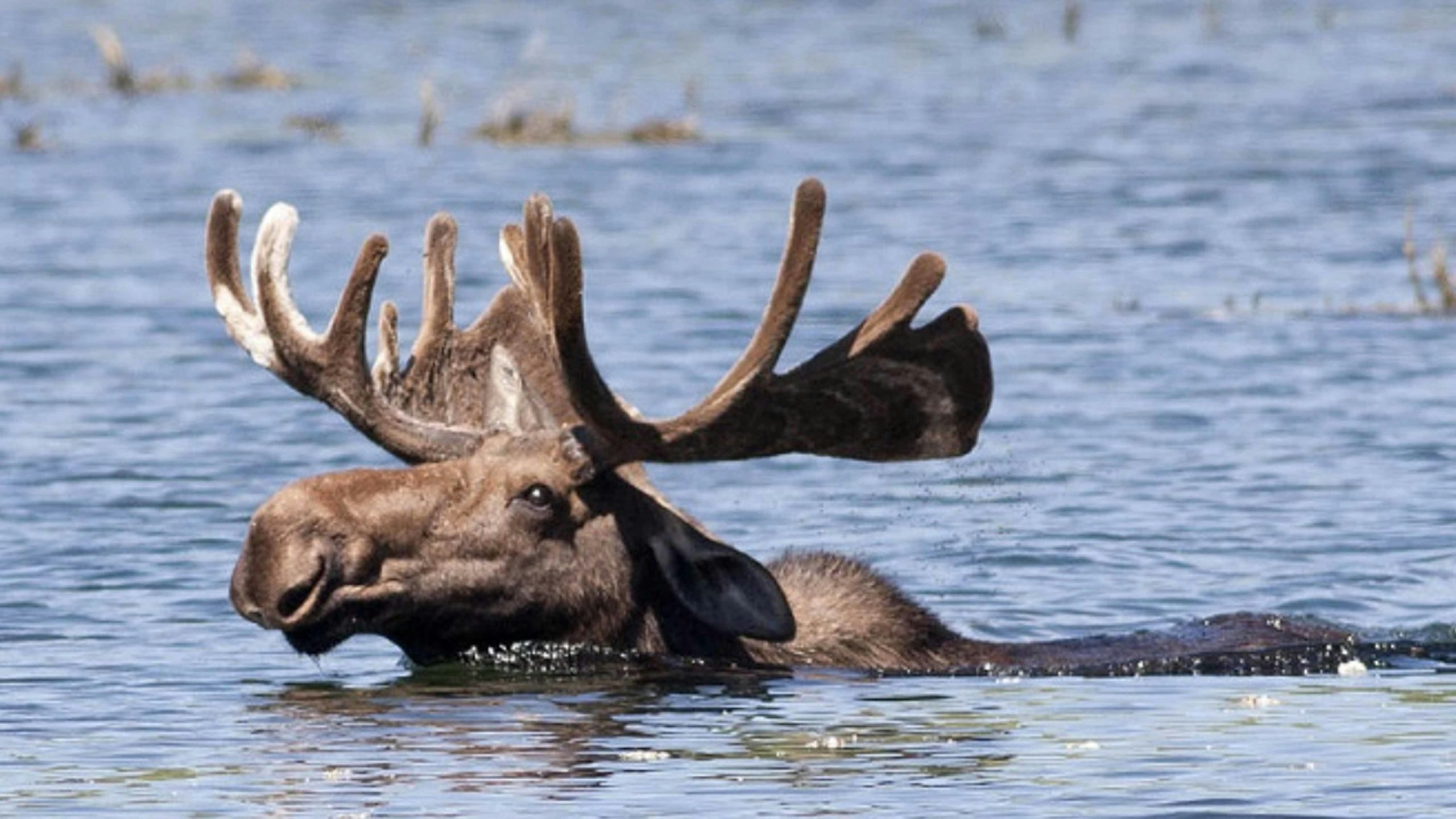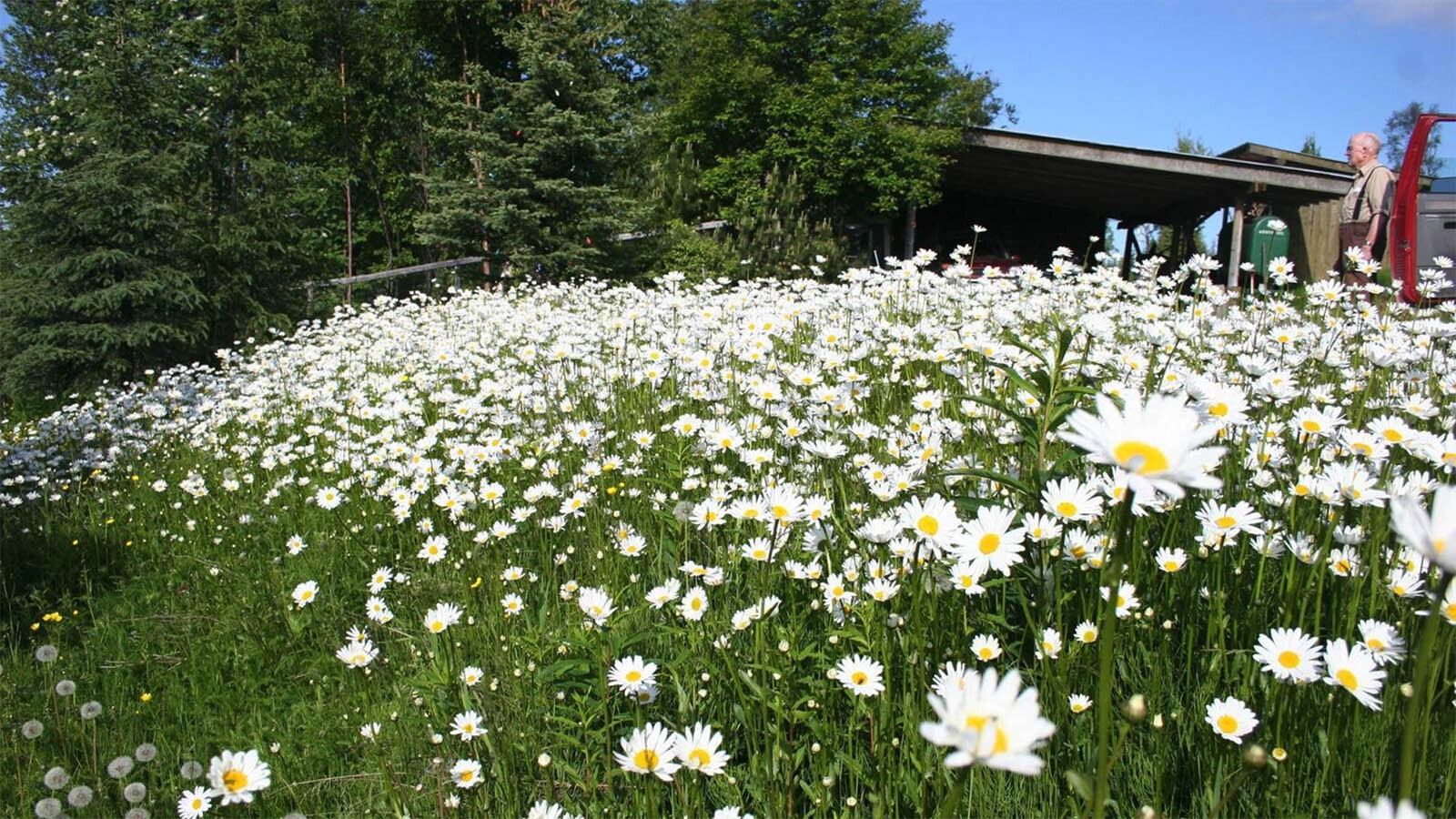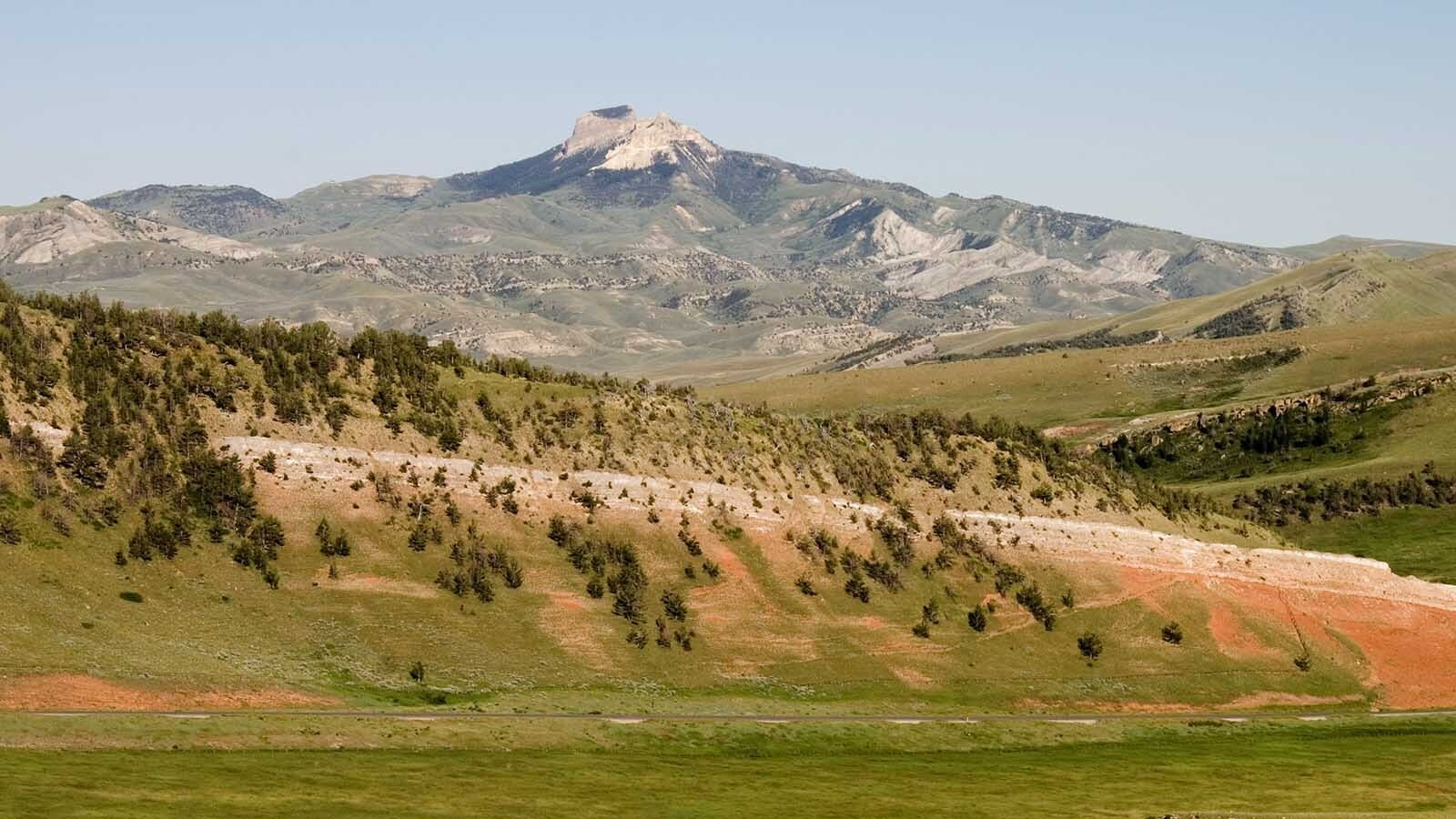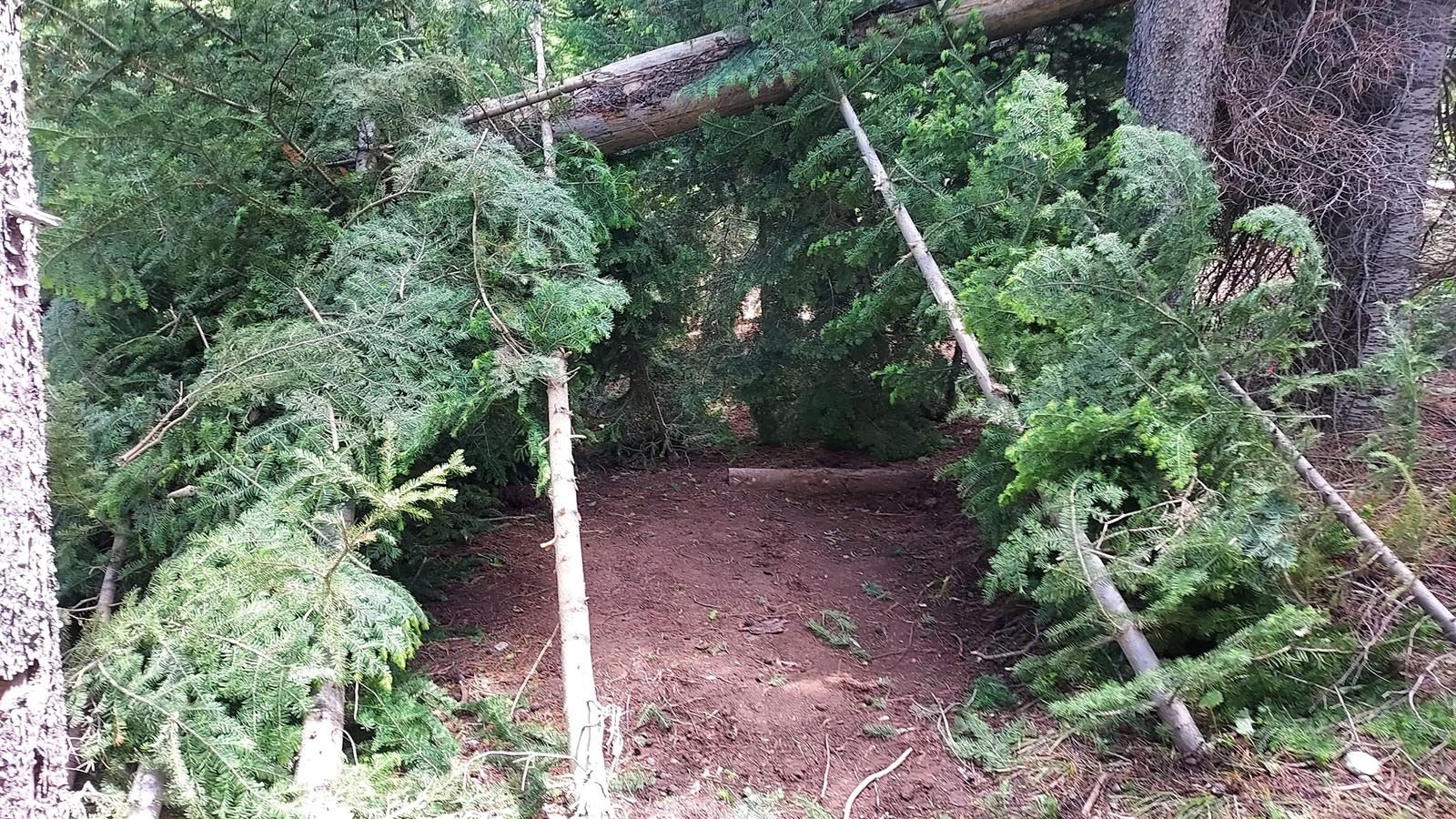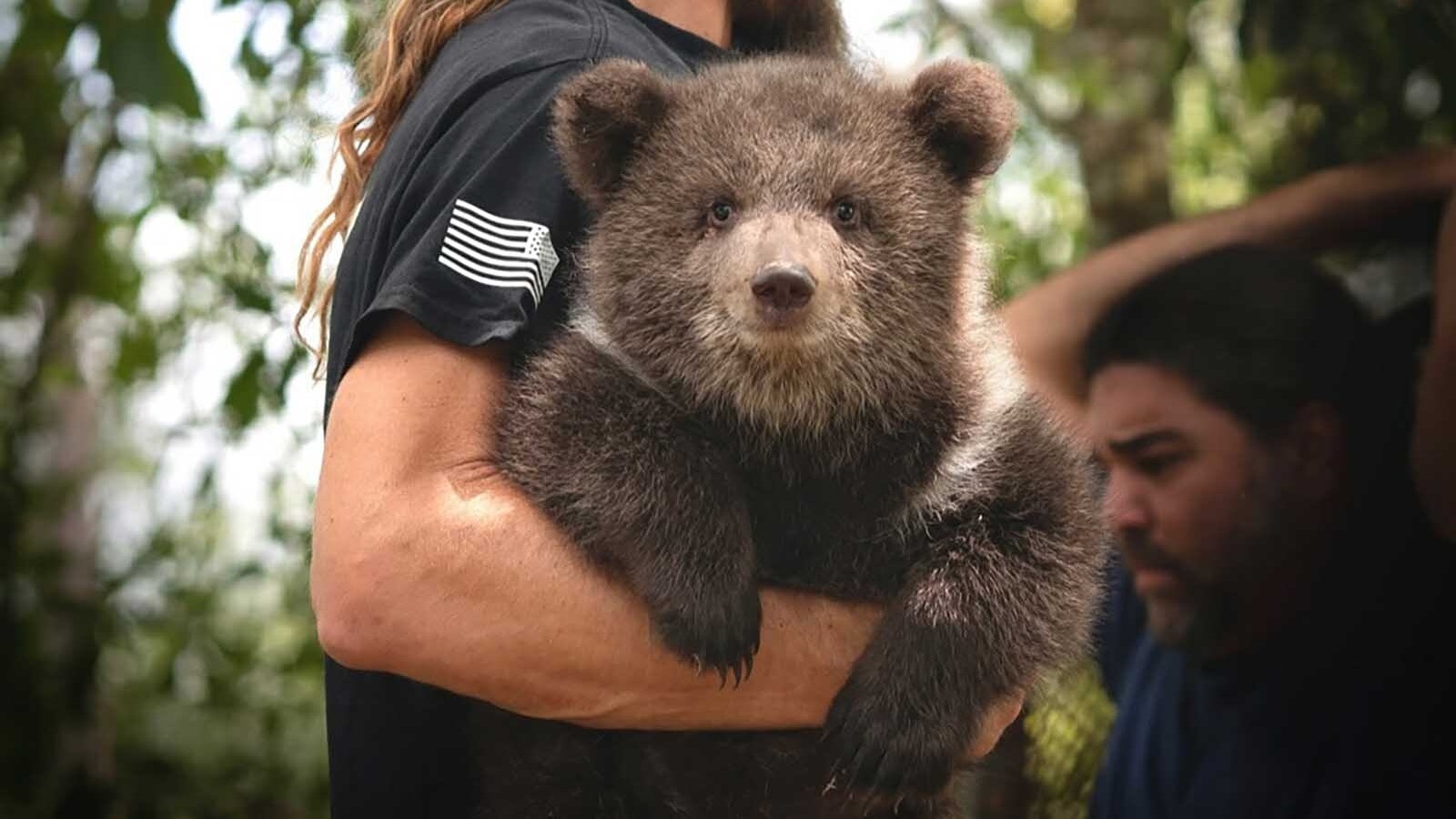The historic flooding in Yellowstone National Park has destroyed roads, bridges and multiples pieces of infrastructure, but one concern some people have is about one of the park’s most popular attractions: the animals.
Many comments on social media this week have popped up, with people inquiring about the safety of the bears, bison, elk, moose and the many more creatures that inhabit the Yellowstone ecosystem.
And for those concerned about the fate of the millions of animals that call Yellowstone home, wildlife biologists and game officials have reassuring words — they’re doing just fine.
Wyoming Game and Fish Department spokeswoman Sara DiRienzo told Cowboy State Daily on Friday that although the department does not manage the Yellowstone wildlife, the permanent inhabitants of the 2.2 million-acre park are very resilient.
“They continually contend with and survive Wyoming’s extreme weather,” DiRienzo said. “A large flood would certainly temporarily displace them to other areas. But, like we’ve seen with fires in the southeast, they do return quickly when conditions stabilize.”
Wildlife Care
But many people who aren’t familiar with the outdoors don’t seem to understand that animals can adapt.
Case in point, Preston Ferguson who wrote on a popular Yellowstone Facebook page that he saw a lot of empty cattle trucks heading to Yellowstone. “I hope they’re saving all the wildlife,” he posted.
Ever the helpful group, other Facebook posters jumped right in to respond.
“Yes, the cowboys will be along to lasso all of the animals,” Linda Faber wrote. “You can sleep tonight, rest assured, they’ll all be transported to Chicago.”
“Didn’t you know that when the ‘zoo’ has an emergency, all the wildlife are picked up and placed in foster care?” Christine Edwards said.
One person couldn’t handle the question.
“6:45 in the morning and I’ve already lost hope in society for the day,” Caleb Mertz said.
No Evacuation For Animals
The park has been closed since Monday morning, when flooding caused by torrential rains and melting snow washed out roads and made the northern part of the park completely inaccessible. More than 10,000 visitors were removed from the park.
But National Park Service wildlife biologist Doug Smith told Cowboy State Daily on Friday that no such drastic action was needed for the park’s biggest predators, such as wolves and bears.
Smith said the large animals can tolerate major flooding since they don’t tend to stay in dens or travel near rivers.
“These areas will be easy for them to avoid, and most are mature enough to move away,” Smith said. “There will be some accidents for an animal trying to cross a swollen stream, but this will be like any other year when waterways are in flood stage.”
Smith said that the predators’ offspring are at least a few months old by this time of year, so they are also less vulnerable to the flooding.
Ungulates such as bison will likely experience some accidents, but Smith said high water is a challenge for those animals every year.
Smith also said some of the animals that wolves and bears eat, like elk, moose and deer, are also probably doing fine and that they could even benefit from the flood because the influx of water gives the plants they eat a boost.
Waterbirds have strategies to withstand floods, such as adding material to their nests to build them up and keep eggs dry.
“Waterbirds may have trouble with reproduction due to nest flooding,” he said Friday. “We are monitoring trumpeter swans, which have begun nesting, and common loons, which are starting or have started, and nesting pelicans and cormorants as the one colony in the park is likely underwater. We check it aerially and have not done so yet, but it could be complete reproductive failure.
“Ospreys may be severely impacted as they depend almost entirely on fish,” he continued. “They may have difficulty finding fish with such high-water levels and murky, muddy water. Fish researchers have said many trout may get blown out.”
Bald eagles will likely not be impacted as they have a broader diet than just fish.
“Wet, cold weather can affect other nesting raptors like golden eagles and peregrine falcons. We plan to monitor their nesting activities once access is safe,” Smith said.

